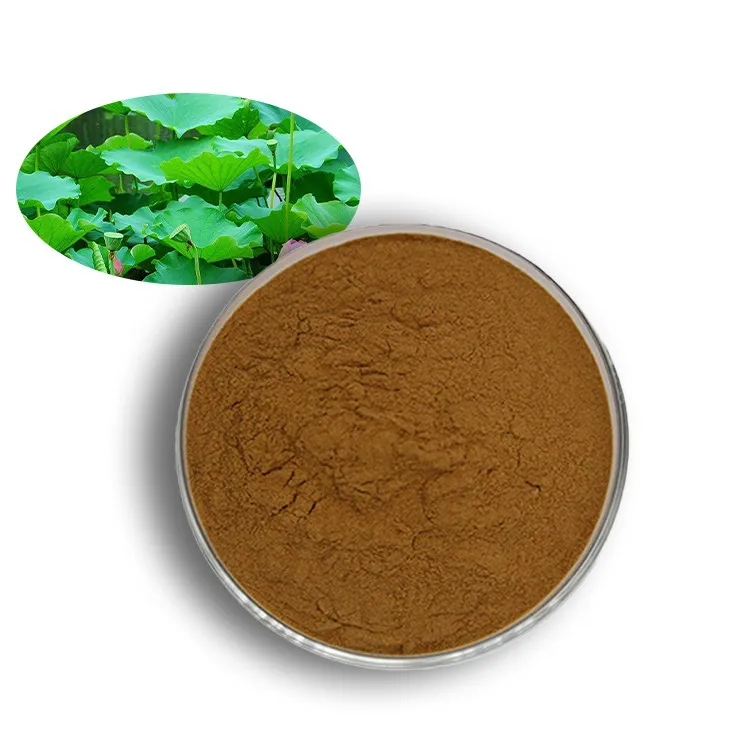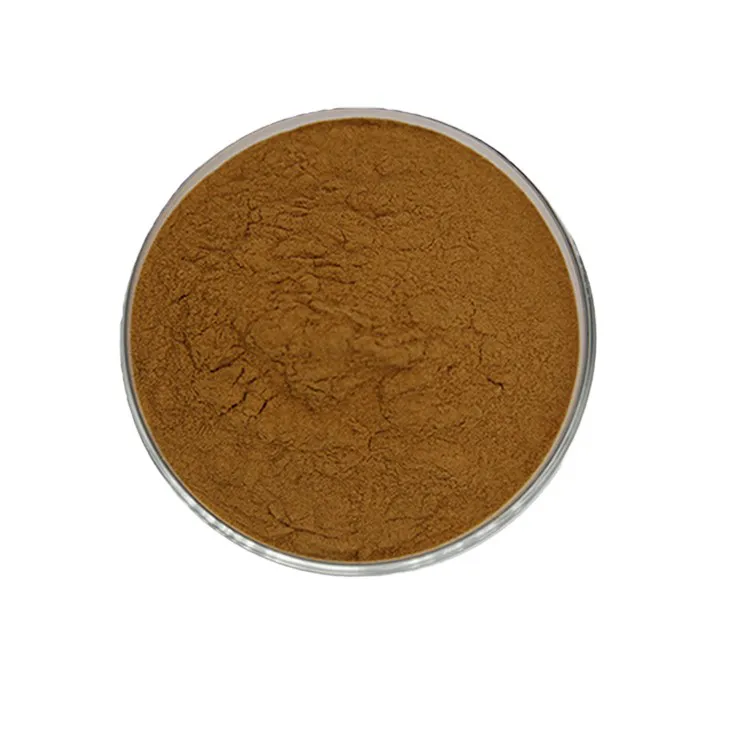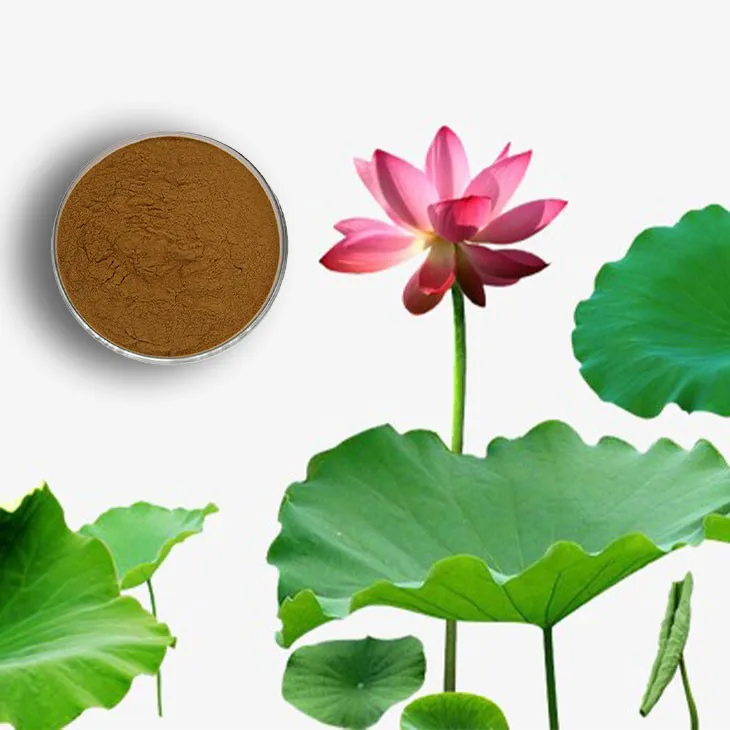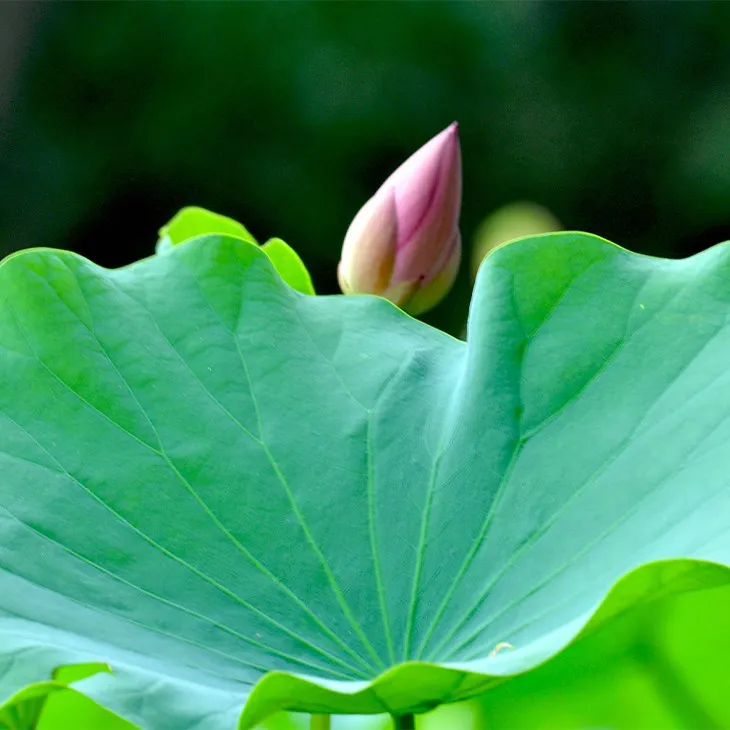- 0086-571-85302990
- sales@greenskybio.com
Lotus Leaf Extract: Innovation, Richness and Beauty
2024-12-13

Introduction
The lotus leaf, an iconic symbol in many cultures, has been a source of fascination for centuries. However, it is only in recent times that the Lotus leaf extract has emerged as a highly valuable substance. This extract is a testament to the power of nature, offering a plethora of benefits across multiple industries. It combines the elements of innovation, richness in chemical composition, and the promotion of beauty, both in terms of physical appearance and overall well - being.

The Innovation Aspect
In Cosmetics
The use of Lotus leaf extract in the cosmetics industry is a prime example of innovation. Cosmetic companies are constantly on the lookout for natural ingredients that can offer unique benefits. Lotus leaf extract has stepped into this arena with great success. It is being incorporated into a wide range of products such as moisturizers, serums, and masks. For instance, its antioxidant properties help in protecting the skin from environmental damage. This is a significant innovation as consumers are increasingly demanding products that not only beautify but also protect their skin from factors like pollution and UV rays.
In Food
The food industry has also witnessed the innovative use of lotus leaf extract. It is being added to various food products as a natural preservative. This is due to its antimicrobial properties which can inhibit the growth of harmful bacteria in food. Additionally, some health - conscious food manufacturers are using it in functional foods. For example, it can be added to energy bars or drinks to provide an extra boost of nutrition. The unique flavor profile of the lotus leaf extract, which is subtly sweet and earthy, also adds an interesting dimension to food products.
In Medicine
When it comes to medicine, lotus leaf extract is showing great promise. Researchers are exploring its potential in treating various health conditions. For example, it may have anti - inflammatory properties that could be beneficial in managing chronic inflammatory diseases. Some initial studies also suggest that it could play a role in regulating blood sugar levels, which is a major area of concern in modern medicine, especially in the context of diabetes. The innovative use of lotus leaf extract in medicine is opening up new avenues for drug development and alternative therapies.

The Richness of Lotus Leaf Extract
Chemical Components
The richness of lotus leaf extract lies in its diverse chemical components. It contains flavonoids, which are well - known for their antioxidant and anti - inflammatory properties. These flavonoids, such as Quercetin and kaempferol, help in neutralizing free radicals in the body. Another important component is alkaloids. Alkaloids in the lotus leaf extract may have various physiological effects, including potential effects on the nervous system. Additionally, the extract also contains tannins. Tannins are known for their astringent properties, which can be useful in certain cosmetic applications, for example, in tightening the pores of the skin.
Beneficial Compounds
There are several other beneficial compounds present in the lotus leaf extract. Phytosterols are one such group. Phytosterols are structurally similar to cholesterol and can play a role in maintaining healthy cholesterol levels in the body. This is of great importance as high cholesterol levels are associated with an increased risk of heart disease. Another interesting compound is polysaccharides. Polysaccharides in the lotus leaf extract may have immunomodulatory effects, which means they can help in regulating the immune system. This could potentially be useful in preventing infections and autoimmune diseases.

The Beauty - Promoting Properties
For Skin Health
In the realm of beauty, lotus leaf extract has a remarkable impact on skin health. Its antioxidant properties help in preventing premature aging of the skin. By neutralizing free radicals, it reduces the formation of wrinkles and fine lines. The extract also has moisturizing properties. It can help in maintaining the skin's moisture balance, keeping the skin hydrated and supple. Moreover, its anti - inflammatory properties are beneficial for those with sensitive or acne - prone skin. It can reduce redness and inflammation, giving the skin a more even - toned and healthy appearance.
For Hair Health
Lotus leaf extract is not only good for the skin but also for hair health. It can be used in hair products such as shampoos and conditioners. The extract has the potential to strengthen hair follicles, reducing hair fall. It also adds shine to the hair, making it look healthier and more lustrous. This is because it can nourish the hair shaft, improving its overall condition.
Overall Well - being and Inner Beauty
Beyond physical appearance, lotus leaf extract also contributes to overall well - being, which can be considered as a form of "inner beauty". As mentioned earlier, its potential in regulating blood sugar levels and maintaining healthy cholesterol levels is beneficial for the body's internal systems. By promoting good health, it can also have a positive impact on mental well - being. When a person is healthy, they are more likely to feel confident and positive, which reflects in their overall demeanor and can be considered as an aspect of beauty that goes beyond the physical.

Challenges and Future Prospects
Challenges
Despite its many benefits, there are some challenges associated with the use of lotus leaf extract. One of the main challenges is standardization. Ensuring a consistent quality of the extract is crucial, especially in the pharmaceutical and food industries. There is a need for well - defined extraction methods and quality control procedures. Another challenge is the limited availability of high - quality lotus leaves. As the demand for lotus leaf extract increases, there may be issues related to sustainable sourcing. Additionally, more research is needed to fully understand the long - term effects of using lotus leaf extract, especially in higher concentrations.
Future Prospects
The future prospects of lotus leaf extract are very promising. With further research, it is likely that more of its potential benefits will be discovered. In the cosmetics industry, it could become a staple ingredient in high - end products. In the food industry, it may be used more widely as a natural preservative and functional ingredient. In medicine, it could lead to the development of new drugs or therapies. There is also potential for the development of new extraction techniques that could improve the efficiency and quality of the extract. Moreover, efforts towards sustainable sourcing of lotus leaves could ensure a continuous supply of high - quality lotus leaf extract for future generations.
Conclusion
Lotus leaf extract is truly a remarkable substance that embodies innovation, richness, and beauty. Its innovative applications in cosmetics, food, and medicine are opening up new opportunities for various industries. The richness of its chemical composition endows it with a wide range of functions, from antioxidant and anti - inflammatory to potential effects on cholesterol and blood sugar regulation. And in terms of beauty, it promotes both outer beauty through skin and hair health and inner beauty through overall well - being. While there are challenges to overcome, the future looks bright for lotus leaf extract, and it is set to play an even more significant role in the years to come.
FAQ:
What are the main applications of lotus leaf extract?
Lotus leaf extract has a wide range of applications. In the cosmetics industry, it is used in products for maintaining youthful skin. In the food industry, it can be added to certain products for its potential health - promoting properties. In the medicine field, it may also be utilized for its various functions due to its rich chemical components.
What makes lotus leaf extract so innovative?
It is innovative because it is being incorporated into novel products in multiple industries such as cosmetics, food, and medicine. It brings new possibilities and functions to these products, which is not common for many other natural extracts.
What are the chemical components in lotus leaf extract?
Lotus leaf extract contains a diverse range of chemical components. These include alkaloids, flavonoids, and polyphenols, among others. These components are responsible for its various functions in different applications.
How does lotus leaf extract contribute to beauty?
In the beauty industry, lotus leaf extract helps in maintaining youthful skin. It may have antioxidant properties that can fight against free radicals, which are known to cause skin aging. It may also have moisturizing and anti - inflammatory effects on the skin.
What role does lotus leaf extract play in promoting health?
Lotus leaf extract may play an important role in promoting health. For example, its chemical components might have antioxidant, anti - inflammatory, and potentially anti - microbial properties. These can help in preventing certain diseases and maintaining overall well - being.
Related literature
- The Chemical Composition and Bioactivities of Lotus Leaf Extract"
- "Lotus Leaf Extract in Cosmetics: A New Frontier in Skin Care"
- "The Potential Health Benefits of Lotus Leaf Extract in Food and Medicine"
- ▶ Hesperidin
- ▶ citrus bioflavonoids
- ▶ plant extract
- ▶ lycopene
- ▶ Diosmin
- ▶ Grape seed extract
- ▶ Sea buckthorn Juice Powder
- ▶ Beetroot powder
- ▶ Hops Extract
- ▶ Artichoke Extract
- ▶ Reishi mushroom extract
- ▶ Astaxanthin
- ▶ Green Tea Extract
- ▶ Curcumin Extract
- ▶ Horse Chestnut Extract
- ▶ Other Problems
- ▶ Boswellia Serrata Extract
- ▶ Resveratrol Extract
- ▶ Marigold Extract
- ▶ Grape Leaf Extract
- ▶ blog3
- ▶ blog4
- ▶ blog5
-
Pure 85% Tomentil Extract.
2024-12-13
-
Tongkat Ali Extract Powder
2024-12-13
-
Chasteberry Extract
2024-12-13
-
Tinospora cordifolia extract
2024-12-13
-
Bilberry Extract
2024-12-13
-
Lavender Extract
2024-12-13
-
Shikonin
2024-12-13
-
Licorice Root Extract Powder
2024-12-13
-
Saffron Extract Powder
2024-12-13
-
Milk Thistle Extract
2024-12-13
-
Ginseng Root Extract
2024-12-13





















